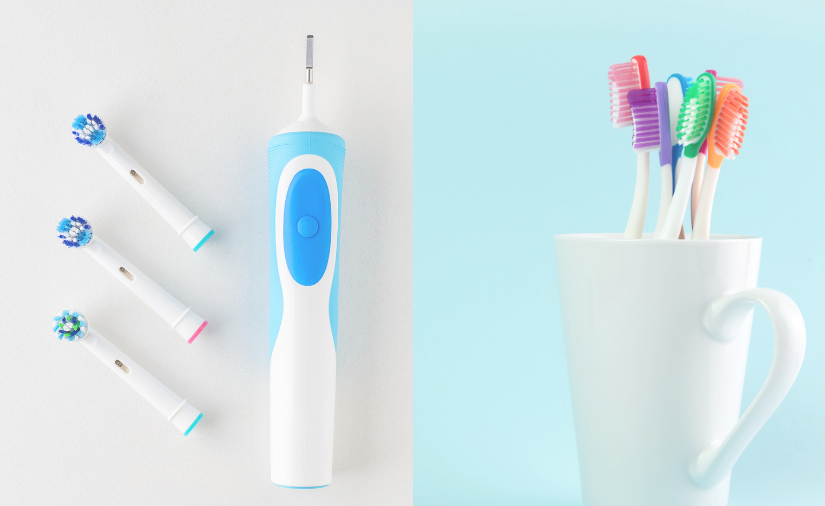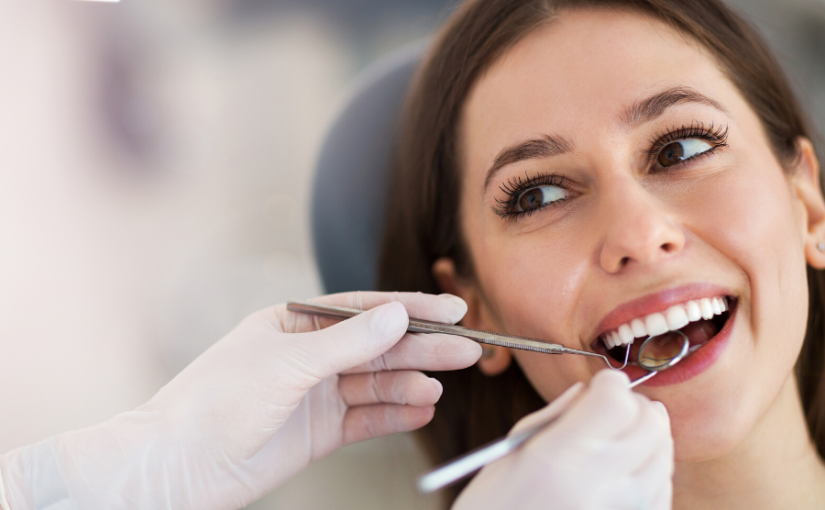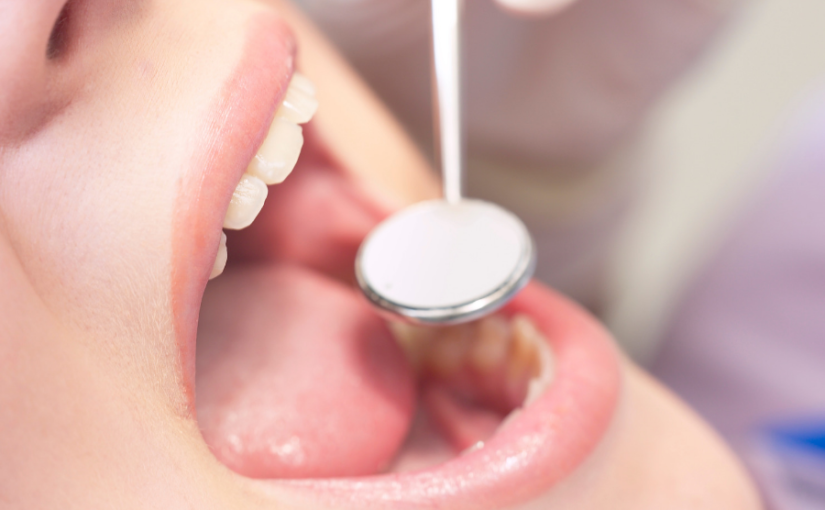By: Dr. Elizabeth Eggert
Dental professionals everywhere sing the same tune. Brush your teeth. Twice a day. Two minutes per session.
It’s a critical action for healthy teeth and overall oral wellness.
But what’s the best way? Dr. Elizabeth & Dr. Jeff, and especially our Eggert Family Dentistry hygienists, hear that question all the time. Manual or electric? Which is the best toothbrush for the job?
The ADA (American Dental Association) approves both for removing oral plaque, which causes decay and gum disease.
Let’s explore the pros and cons so you can come to your own personal conclusion on the subject.
Electric Toothbrush: The Pros
Greater cleaning power: One powerful advantage of the electric toothbrush is the ultrasonic vibration they offer. The bristles vibrate or rotate, helping dislodge plaque buildup from your gums and teeth. Those electric micro-movements help ensure good coverage when you brush. Studies show that electric toothbrushes are more effective at decreasing plaque and gingivitis than manual toothbrushes.
Easier for those with limited mobility: Because they do most of the work for you, electric toothbrushes may be best for people with limited mobility, such as people with arthritis, carpal tunnel, or paralysis. They may also be easier to use for people with developmental disabilities.
Built-in timer: Most electric toothbrushes today have an integrated timer, ensuring that you brush for a full two minutes. Many also signal each 30 seconds, so you can make sure you give equal attention to each quadrant of your mouth.
Less waste: In terms of generating trash, electric toothbrushes are generally better than manual because the piece that’s discarded and replaced is smaller.
May be better for people with orthodontic appliances: The high-speed rotating effects or ultrasonic vibrations of an electric toothbrushes can make it easier to brush around braces and other orthodontic appliances.
Kids often love them: Children who resist brushing because they find it boring may be more engaged with an electric toothbrush.
Healthy gum stimulation: An electric toothbrush will stimulate your gum tissues better than a manual brush.
Electric Toothbrush: The Cons
Price: Electric toothbrushes always cost more.
Replacing the heads: It may not be convenient to find replacements, and they are often sold in quantities to last a year or two. While this can be very convenient, it also adds to the investment!
Electricity needed: Most need to plug in to operate or to recharge. Some cheaper versions are battery operated, but then also don’t last as long.
Ticklish to some: Not everyone likes the vibrating sensation, although most people do get used to it.
More mess: Electric toothbrushes tend to generate more saliva, causing splatter to escape the mouth and get all over the bathroom mirror!
Manual Toothbrush: The Pros
Simple & effective: The handheld toothbrush will never go out of style. No electricity, charging, or batteries. Quiet and so portable! The manual toothbrush has stood the test of time.
Ubiquitous and accessible: Pick one up at any pharmacy, gas station or grocery store.
Cheap: Just a few dollars for three months of dental hygiene.
Manual Toothbrush: The Cons
Potential for overuse: According to one study, people using a manual toothbrush may be prone to brushing too hard, which can damage your gums and teeth.
No timer: Are you brushing for at least a full two minutes? If you have doubts, try watching the clock or using a kitchen or cell phone timer.
What’s the bottom line? At Eggert Family Dentistry, we really just want you to brush. Whatever device makes it easiest for you to keep up on your brushing—manual or electric—we support it! Call Eggert Family Dentistry at 651.482.8412 today for any questions you may have.










